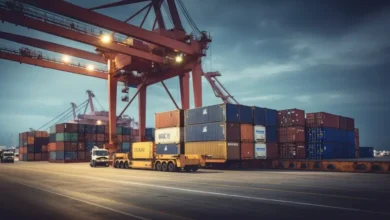
Understanding Vehicle Transport in Pennsylvania: What You Should Know
Understanding Vehicle Transport in Pennsylvania
Transporting a vehicle may seem overwhelming, especially in a diverse state like Pennsylvania, where urban hubs and rural stretches meet. Whether you’re relocating, selling, or purchasing a car, knowing the basics of vehicle transport can make the process far less stressful. Here’s a helpful guide to navigating vehicle transport in Pennsylvania.
Picking the Right Transport Option
The two most common methods of vehicle transport are open and enclosed transport. Here’s what to know about each:
- Open Transport: Vehicles are shipped on an open trailer, which is cost-effective but leaves cars exposed to weather and debris. This method works well for most standard vehicles.
- Enclosed Transport: Cars are transported in an enclosed trailer, protecting them from external elements. While it’s more expensive, this option is ideal for luxury or classic cars that need extra care.
Consider the value and condition of your vehicle when choosing the best transport option for your situation.
Meeting Legal and Registration Standards
Pennsylvania has specific rules for vehicle transport, especially if you’re bringing a car into the state or moving it across state lines. Ensure your vehicle’s registration and title are current. If your car isn’t yet registered in Pennsylvania, you may need a temporary transit plate for legal transportation.
If you’re hiring a professional transport service, verify that the company complies with state and federal laws. Ensure they are licensed by the Federal Motor Carrier Safety Administration (FMCSA) and have insurance coverage to protect your vehicle during the journey.
Understanding Transport Costs
Several factors influence the cost of Pennsylvania car transportation:
- Distance: Longer hauls generally mean higher prices.
- Vehicle Type: Larger and heavier vehicles can cost more to ship.
- Transport Style: Enclosed transport tends to be more expensive than open transport.
- Seasonality: Rates often rise during busy moving seasons or when demand spikes.
To get the best deal, request quotes from multiple transport companies and compare their services and prices.
Preparing Your Vehicle for Transport
Getting your vehicle ready for shipping is a critical step. Here’s a checklist to ensure everything is set:
- Clean the Car: A clean vehicle makes it easier to spot any existing damage.
- Inspect and Document: Take photos of your car from all angles to record its condition before transport.
- Remove Personal Items: Many transporters prohibit personal belongings in the vehicle, and doing so could void insurance.
- Address Maintenance: Check fluid levels and fix any leaks to avoid complications during transit.
- Disable Alarms: Prevent disruptions by turning off any car alarms.
Finding a Trustworthy Transport Company
Choosing the right company is vital for a smooth experience. Look for companies with positive reviews, valid licenses, and clear insurance policies. Ask questions about their procedures, delivery timelines, and any additional fees to ensure there are no surprises.
Final Words
Successfully transporting a vehicle in Pennsylvania requires planning and attention to detail. Whether you’re moving across town or the country, selecting the right transport method, understanding costs, and properly preparing your vehicle are key steps. With the right approach, your car can be transported safely and efficiently, making the process as hassle-free as possible.



